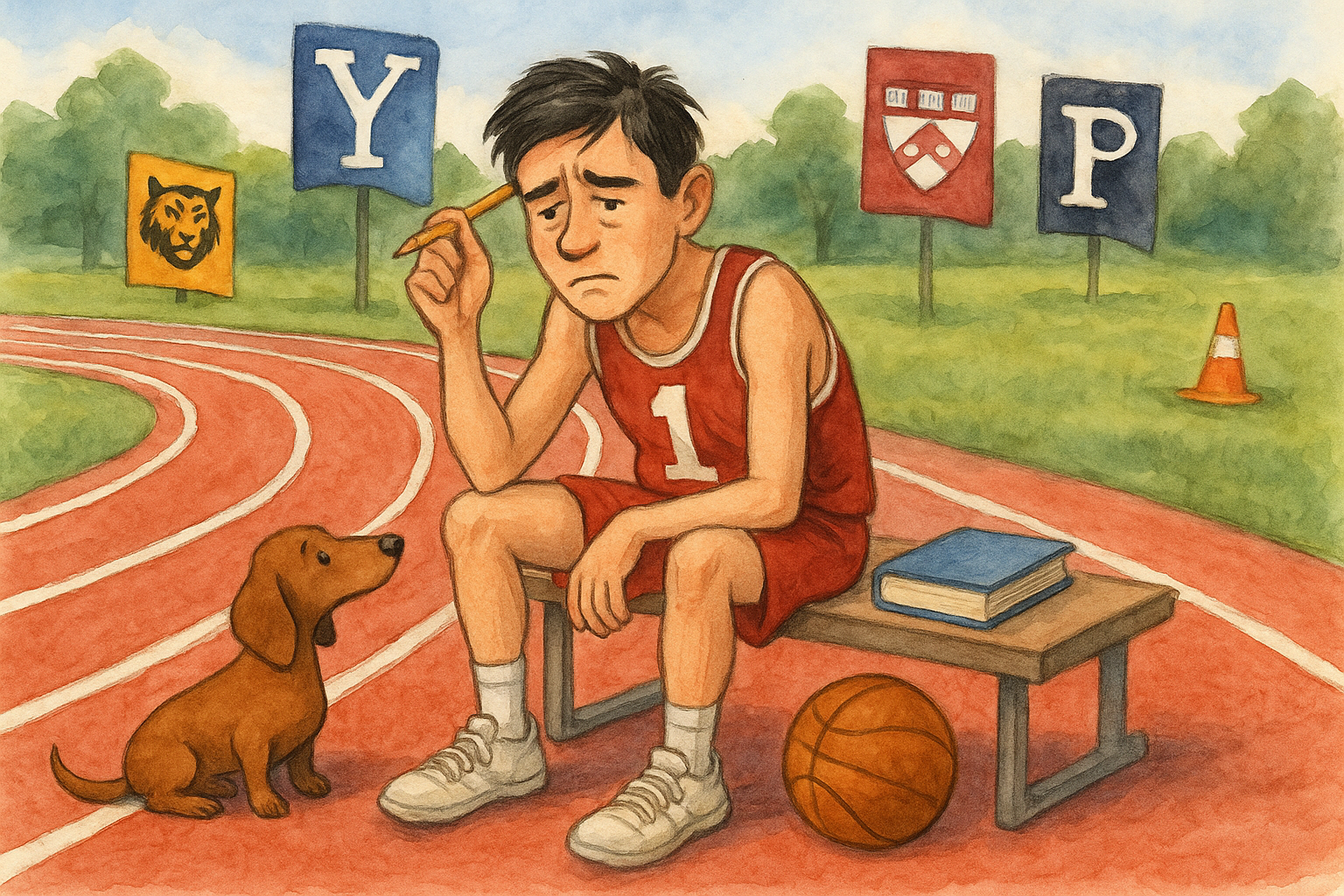
Colleges Think You Wasted Time on Sports
Aside from one poorly-fated season of freshman year cheerleading (cut short by a devastating combination of clumsiness and crushing embarrassment), I never did athletics.
I still got into top schools.
So, as an admissions guru, I tell students to skip practice all the time.
Before a big test? Miss it.
Need to finish your essay? Miss it.
Exhausted and sleep-deprived the night before the ACT? Cancel practice. I promise, the coach will survive.
I’ve even told students that becoming varsity captain isn’t the flex they think it is.
“But sports show discipline!”
Sure. So does robotics. Or building an app. Or self-teaching yourself three languages. Or writing a novel. Or working part-time to support your family. Or launching a podcast about niche economic policy. Or anything that takes consistency and effort.
Being a committed athlete can be impressive, but it’s no longer rare.
- 42% of Common App applicants list a sport in their top 10 activities.
- Over 150,000 varsity captains apply to college every year.
- And only 1.9% of high school athletes go on to play NCAA sports. (That’s all divisions.)
Unless you’re in that tiny recruited percent, sports aren’t the differentiator you think they are. They're background noise. Familiar. Predictable.
Colleges see it all the time:
Soccer, 4 years, Varsity, Captain.
Swim team, 4 years, State Qualifier.
Volleyball, Club + Varsity, 10 hours/week, all year.
That might be your whole life. To them, it’s Tuesday.
Sports are a time-suck.
Practice is every day. Weekends are tournaments. Off-season means training, club, captains’ meetings, conditioning, and travel. Somehow, you’re still expected to ace your classes, lead clubs, write ten essays, and find a passion project that sets you apart?
Every year, I work with brilliant, kind, hard-working students who tell me:
“I just don’t have time to do anything else.”
“I’m always at practice.”
“I wanted to start a YouTube channel, but I have training.”
“I’m too tired to write. I’ll just use the essay from class.”
If your GPA is slipping and your SAT score needs a boost, sports aren’t going to save you.
Here’s how to turn your sport into something colleges care about:
- Start a business coaching younger athletes.
- Create a soccer program for special needs students in your district.
- Run a swimathon that raises money for charity.
- Launch a YouTube channel teaching volleyball drills or discussing sports psychology.
This is what actual leadership looks like. That’s what colleges look for. Plus, it’s a hundred times more interesting than “Captain, 11th and 12th grade.”
You’re not quitting your sport. You’re growing it.
You don’t need to play a sport to get into your dream school.
If you love it, keep going. If it helps your mental health, protect it. If it lights you up, build something around it that shows the world how much it matters to you.
Here’s what I’ll admit now, as an adult: I do wish I had played something.
I spent years struggling with my weight, my relationship to my body, and how to move through the world with strength. Sports might’ve helped me develop that earlier. I wish I’d known how to move and sweat and compete without attaching it to performance, praise, or perfectionism. But to my born athletes who didn’t binge Doritos every weekend:
You’re allowed to miss practice for a big test.
You’re allowed to study instead of working out.
You’re allowed to prioritize the version of you that exists outside of a jersey.
If you don’t love the sport? If it’s become a chore, a drag, a guilt-trip on your schedule, you can walk away. No college is going to value your burnout.
Please don’t waste your energy trying to impress admissions with something they stopped noticing years ago.
You don’t need to play a sport to get into your dream school. You need a story, a strategy, and the time to build both.

Post a comment